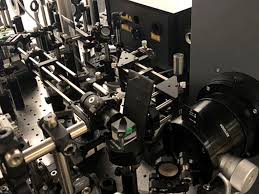
Breaking News
 Massie Introduces Bill to Get US Out of NATO
Massie Introduces Bill to Get US Out of NATO
 Somali Flag Raised Over Vermont School District
Somali Flag Raised Over Vermont School District
 "Kill Babies, Superman"? New CHILDREN'S Book Calls Abortion a "Superpower"
"Kill Babies, Superman"? New CHILDREN'S Book Calls Abortion a "Superpower"
 Gold Warning Issued as New Monetary System Takes Hold
Gold Warning Issued as New Monetary System Takes Hold
Top Tech News
 This tiny dev board is packed with features for ambitious makers
This tiny dev board is packed with features for ambitious makers
 Scientists Discover Gel to Regrow Tooth Enamel
Scientists Discover Gel to Regrow Tooth Enamel
 Vitamin C and Dandelion Root Killing Cancer Cells -- as Former CDC Director Calls for COVID-19...
Vitamin C and Dandelion Root Killing Cancer Cells -- as Former CDC Director Calls for COVID-19...
 Galactic Brain: US firm plans space-based data centers, power grid to challenge China
Galactic Brain: US firm plans space-based data centers, power grid to challenge China
 A microbial cleanup for glyphosate just earned a patent. Here's why that matters
A microbial cleanup for glyphosate just earned a patent. Here's why that matters
 Japan Breaks Internet Speed Record with 5 Million Times Faster Data Transfer
Japan Breaks Internet Speed Record with 5 Million Times Faster Data Transfer
 Advanced Propulsion Resources Part 1 of 2
Advanced Propulsion Resources Part 1 of 2
 PulsarFusion a forward-thinking UK aerospace company, is pushing the boundaries of space travel...
PulsarFusion a forward-thinking UK aerospace company, is pushing the boundaries of space travel...
 Dinky little laser box throws big-screen entertainment from inches away
Dinky little laser box throws big-screen entertainment from inches away
 'World's first' sodium-ion flashlight shines bright even at -40 ºF
'World's first' sodium-ion flashlight shines bright even at -40 ºF
World's fastest camera shoots 10 trillion frames a second

But now the world's fastest camera, developed by researchers at Caltech and INRS, blows them out of the water, capturing the world at a mind-boggling 10 trillion frames per second – fast enough to probe the nanoscale interactions between light and matter.
Last year, the record belonged to a Swedish team with a five-trillion-fps camera, which was itself an improvement of an earlier 4.4-trillion fps system. The new camera casually doubles the previous record-holder, which could make it easier to peer at the nanoscale world with greater "temporal" resolution.
For the new imaging technique, the team started with compressed ultrafast photography (CUP), a method that it is capable of 100 billion fps. That's nothing to scoff at by itself, but it's still not fast enough to really capture what's going on with ultrafast laser pulses, which occur on the scale of femtoseconds. A femtosecond, for reference, is one quadrillionth of a second.



